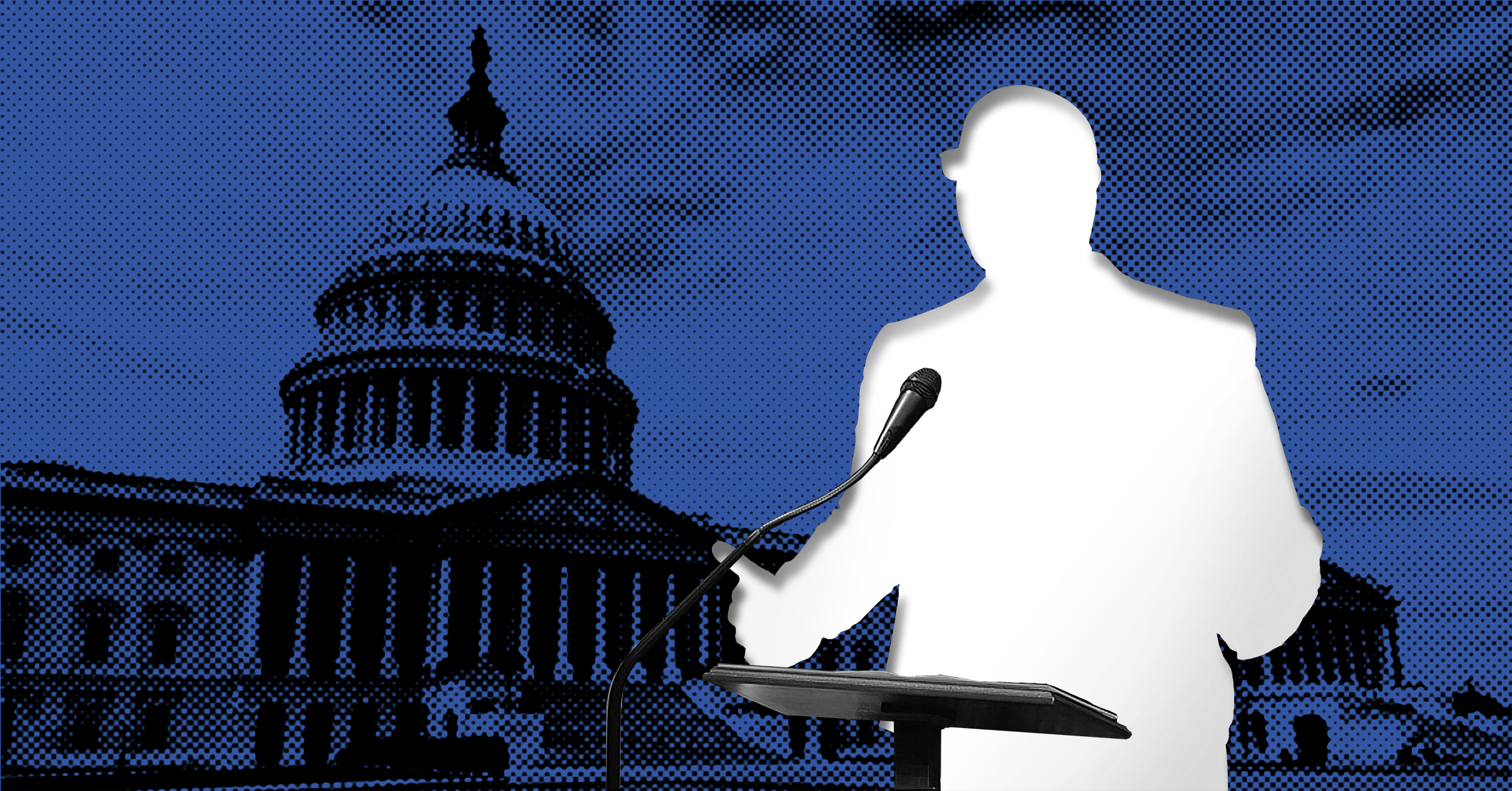The Call is publishing two perspectives on the recent controversy inside DSA over Jamaal Bowman’s trip to Israel. The following article by Wael Elasady makes the case for why DSA should not expel Jamaal Bowman. Read a different take by Ketir Liberato here.
In the past month, several DSA chapters have released statements calling for the National Political Committee to expel Jamaal Bowman from the organization due to his vote to fund Israel’s Iron Dome weapons system.
Following a trip to Palestine and Israel organized by J-Street, the DSA BDS and Palestine Solidarity National Working Group also released a statement calling on the NPC to expel Jamaal Bowman if he does not agree to three demands they list. Most recently, the group released another statement calling on the NPC to immediately begin expulsion proceedings due to Bowman’s refusal to back out of a J Street U Town Hall.
As I will argue below, if the demands of the BDS National Working group were implemented by the NPC, it would have serious negative consequences both for DSA as well as our long-term efforts to challenge U.S. support for Israel at the federal level. Further, the move to strip Bowman of his DSA membership would run counter to democratic practice and standards.
Organizational Democracy and Membership Rights
Membership rights are the bedrock of democracy in any organization. Expulsion is the most serious disciplinary measure a non-state entity can take. Bowman’s public role as an elected official certainly means he is subject to more scrutiny, but this in no way diminishes his membership rights. According to DSA’s bylaws, a member may be expelled only if they are found to be in “substantial disagreement with the principles or policies of the organization, or if they consistently engage in undemocratic, disruptive behavior, or if they are under the discipline of any self-defined democratic-centralist organization.”
While Jamaal Bowman’s position on BDS puts him at odds with one of the articles in DSA’s political platform, this platform is not binding on members; as was affirmed in the most recent DSA convention by over 60% of delegates. (This is for good reason, DSA’s political platform is over 10,000 words long and has something like 300 or so points and sub-points with sweeping and in some places, very specific policy prescriptions.) Therefore, any decision by the NPC to expel Bowman if he fails to change his position on Boycotts, Divestment, and Sanctions (as the BDS working group is demanding) would run counter to the democratic will of the highest decision-making body in DSA, representing its 90,000 members.
That leaves the question of whether Jamaal Bowman is in substantial disagreement with the principles of DSA, which might also justify his expulsion. Bowman’s meeting with a right-wing Israeli prime minister was a serious mistake. His Iron Dome vote, in particular, was a transgression that should be firmly condemned and challenged by members, as should any future votes of its likeness. This is not being contested. If this was all there was to Jamaal Bowman’s politics, if Bowman’s record could be reduced to that of a pro-Zionist who consistently votes against the interest of Palestinians, then calls for expulsion would be warranted. As I will show in more depth below, a more holistic analysis of Bowman’s position on Palestine (not to mention his strong progressive bonafides on other issues) raise doubts that his recent actions alone would place him beyond the pale of democratic socialist politics, and justify calls for expulsion.
Expulsion, particularly when evoked over a question of DSA’s political boundaries, should be rare and only carried out for very clear and flagrant violations after all other attempts to address an issue are exhausted.
This point is important precisely because the history and present moment of the socialist left are littered with threats of expulsion and examples of membership status being weaponized as a means by which to settle political differences. This is certainly not a clear cut case and as the DSA bylaw quoted above shows a significant amount of subjective judgement would go into making a decision to expel. Furthermore, we would be fooling ourselves to not see familiar factional fault lines related to differences over electoral strategy, use of the Democrats’ ballot line, and the scope of DSA’s “big tent” approach underlying calls for Bowman’s expulsion. What I’m driving at here is that if membership status comes to be seen and accepted as a proxy for settling political differences among the multitude of political tendencies within DSA, the organization is in big trouble.
Narrow Program Over Progress?
The demands raised by the BDS and Palestine Solidarity working group that all DSA-endorsed officials support BDS and have no affiliation with groups like J-Street have far-reaching effects well beyond Jamaal Bowman’s membership status that must also be carefully considered.
As a Syrian-born Palestinian who has spent their entire adult life fighting for Palestinian liberation and supporting the growth of BDS, it might seem strange for me to question what at first blush appears to be a reasonable requirement. However, if one goal of engagement in electoral politics is to help end the American government’s support for Israeli Apartheid, then we should not be so hasty as to isolate ourselves from the very few U.S. politicians who are critical of Israel, voice clear support for Palestinian human rights, and can be educated and compelled further leftward on this issue.
It should not be forgotten that if these conditions had been applied to candidates back in 2016 and 2020, Bernie Sanders would not have received DSA’s endorsement! In this case, DSA would have taken an ostensibly stricter position on BDS, but likely by sacrificing the organization’s resulting growth to 90,000 members. This also says nothing of the importance of Sanders’s resolution to block $750 million in military funding to Israel during its May 2021 military escalation — which for the first time in the history of the Senate raised the possibility of restricting military funds to Israel for its treatment of Palestinians.
Karl Marx’s famous quote “every step of real movement is more important than a dozen programs” may have somewhat overstated the case. The BDS Working Group’s demands, if implemented, would wholly reverse this logic.
This, of course, does not mean we shouldn’t strive to endorse and run members of DSA for office who are already committed to BDS. We absolutely should! An influx of explicitly pro-BDS candidates could help strengthen an anti-Zionist political milieu and provide means through which to pressure and persuade Bowman and others. The reality though, is we still do not have the power to convince every progressive candidate worth endorsing to take up such a position. Neither do we yet have the bench, experience, or party infrastructure to run only the most committed DSA members for office, especially at the federal level. Bernie’s two campaigns clearly show that it would be a serious mistake to refuse endorsement for a candidate simply because they do not agree with every aspect of DSA’s political platform — especially one whose campaign would otherwise raise the level of consciousness, confidence, and organization of the working class.
A Pro-Israeli Apologist in Our Ranks?
Bowman’s vote on Iron Dome funding should be unequivocally condemned, as the NPC has already done. In my opinion, the NPC should also officially censure Bowman specifically on this issue. Bowman may have justified his vote on the grounds that he supports a two-state solution and all states have “a right to defend themselves” against attacks. But as Noam Chomsky among many others has pointed out, no state has the right to resort to violent self-defense until it has first exhausted peaceful means. Israel has clearly not exhausted such means. If that were the case, the world would see an end to Israel’s racist apartheid policies, an end to the illegal occupation of Palestinian territories, and an end to the 14 year-old barbaric siege of Gaza. Of course, Israel refuses, so what it calls acts of “self-defense” are in fact a violent armed enforcement of these illegal and immoral forms of dispossession that Palestinian people have endured for over 70 years. A vote for the Iron Dome therefore provides U.S. funding for weapons that not only have nothing to do with a “right to self defense”, but which also reinforces Israeli intransigence and makes actualization of the moribund two-state solution, which Bowman supports, even less likely.
We also need to make clear that whatever a delegation’s intentions, trips like those organized by J-Street to meet both Israeli and Palestinian leaders will be manipulated by Israel to attempt to repair its sinking image among liberal Democrats, even as it deepens its racist apartheid policies.
With these critical points having been made, it should now be acknowledged that the contradictory nature of Bowman’s relationship to the question of Palestine has been completely flattened in an attempt to justify the calls for expulsion. While anger at his recent decisions is certainly justified, the truth is that Bowman’s position on Palestine is much more contradictory and fluid than what is being presented.
Here are some statements and actions that give color to the other side of his positions:
- Most recently during his J-Street trip, Bowman unsuccessfully attempted to visit Gaza, breaking with American politicians’ collusion in Israel’s siege. He was able to meet with the Palestinian grandmother of Rashida Tlaib, and met with Palestinian children in Hebron in the occupied West Bank tweeting: “Had the honor of meeting with children today in the occupied West Bank city Hebron. There are streets they cannot walk and places they cannot go, simply because they are Palestinian. When I asked about their dreams, their answer was simple: freedom. The occupation must end.”
- During Israel’s last military escalation against Palestinians in May he challenged Representative Richie Torres’s support for Israel, stating: “This is about Palestinians having their land and homes taken from them and our ignorance of Palestinian pain. That is the truth, my brother. The Palestinians are an occupied people. They are an oppressed people. Innocent people and children are suffering as America supports the occupation and denies Palestinians freedom.”
- Here are a few of Bowman’s recent responses about his takeaways from his trip to Palestine and Israel, according to Alex Kane, investigative reporter for Jewish Currents: “’I got to see how conservative and right-wing the Israeli government was.’ Says Bennett is not committed to a two-state solution, and also says Yair Lapid, while saying he supports two-states, didn’t seem too ‘firm’ in that support. ‘There didn’t seem to be appetite [among the Israeli leadership] for any acknowledgement of Palestinian pain, or the Nakba. There was almost like an arrogance that came from Israeli leadership when we were articulating the shift in American Jews’ thinking on this issue. It was like, ‘they don’t live here, they don’t know what the hell they’re talking about.’ ‘”
- Jamaal Bowman is also a co-sponsor of the very important House Bill 2590. In my opinion, while the bill doesn’t go far enough, it could still set the ground for making gains in the realm of sanctions, the all important “S” in BDS.
- It is also no surprise that Pro-Israel lobby group Democratic Majority for Israel unsuccessfully spent millions against Jamaal Bowman’s primary challenge of Eliot Engels, one of Israel’s diehard support in Congress.
Contending with Liberal Zionism
The reason to have a more three-dimensional view of Bowman’s position isn’t to excuse his Iron Dome vote or his meeting with Israeli leaders, but to better calibrate our approach so we can figure out whether we can influence him, and if so, how? The above statements should make clear that Bowman is genuinely grappling with this issue and that he can, indeed, be moved.
This is important to understand exactly because J-Street is also competing to influence progressive politicians. The BDS working group rightfully identifies the very real limits of liberal Zionist groups like J-Street in its statement. Yet the reality is that they remain significant players who are leading a split within the mainstream pro-Israeli camp in the halls of Congress. This process is creating more space to criticize Israel, discuss Palestinian human rights, and introduce legislation like House Bill 2590, which J-Street endorsed. These liberal groups also have the support of a growing number of Jewish Americans who are critical of Israeli policies but have yet to abandon the idea of Israel as a Jewish state. Bowman’s district is home to a sizable Jewish community in the Bronx and Westchester. Bowman cannot simply ignore or dismiss the current political stance of a sizeable minority of his district. Whether we like it or not, a soft alignment with J-Street provides progressive politicians like Bowman the space to criticize Israel (within certain limits) while providing cover from false accusations of anti-Semitism from the establishment in the Democratic Party who will attempt to challenge him in his district.
As long the U.S. ruling class deems Israel an asset for its imperial interests in the region, or until a Palestinian leadership with popular support emerges to provide a real alternative to the two-state settlement framework and break the current impasse, we will be competing for influence with liberal Zionists like J-Street for some time to come. If we agree with or allow uncritical support of these liberal Zionist groups, then we betray our commitment to the Palestinian cause and our ability to challenge imperialism in its liberal garb. But we must deal with reality on the terms in which we find it. If the only option we offer our candidates is to boycott J-Street or face expulsion, DSA’s ability to project and expand its platform on Palestine at the national level will be dead on arrival. In simple terms, it would mean abandoning this critical terrain entirely and handing progressive politicians over to J-Street’s leadership without a fight.
Hegemony not Coercive Discipline
In the specific case of Jamaal Bowman, “facing reality” means that in practice, DSA’s response requires a more protracted process of engagement and pressure with Bowman; which should include organization and educational efforts within his district that can win over a portion of constituents and weaken the influence of pro-Israeli lobby groups of all varieties.
Such engagement with Bowman would be a dynamic process to unfold and assess as we consider, in real time, how the Congressman responds when offered opportunities. In the worst case scenario, Bowman continues to move rightward on Palestine and we have an unambiguous case for more serious disciplinary measures. Yet in the best case scenario, we apply organizing prowess to move Bowman’s political position, and win over an influential U.S. politician to help us enact our most critical reforms. A most precious asset in what is an incredibly stacked fight.
DSA can take this more measured and intentional approach while still protecting the integrity of the organization and even winning more members to a stronger position on Palestine. The NPC and local chapters can continue to vocally support BDS, officially censure Bowman’s vote for Iron Dome, and restate a commitment to Palestinian liberation. DSA could even organize a well-publicized delegation of members and elected officials not only to highlight Israel’s crimes in the Occupied West Bank and Gaza but to show that its racist apartheid spans the whole of historic Palestine; something that is not being accomplished within the void currently filled by J-Street.
This approach would allow us to continue to build on DSA’s strong support for Palestinian liberation in a way that doesn’t threaten democratic rights, unnecessarily isolate our still small organization, or overinflate our reach, importance, and size. This approach would prevent us from squandering what leverage we do have with Jamaal Bowman in the name of washing our hands of a difficult situation to save face.
In conclusion, if we want our political ideas to predominate, whether within our organization, among elected officials, or society at large, then our greatest strength is not in how vigilantly we police the boundaries of political discourse and exact punitive discipline, but whether or not we can gain hegemony through education, democratic debate, winning elections, and hard nosed organizing. It is only through earning, not simply demanding, that our ideas can gain a stronger foothold among those who have the power to truly make the changes we want to see — the working class of this country.
Much is at stake. This is the first real crisis and resulting “test” that DSA has faced in the “post-Bernie” political era. The way in which our organization responds will set the tone and direction of our political trajectory. Are we going to become an organization that has perfect politics on paper, but is isolated from a mass audience as well as the levers of political power, as a multitude of small socialist organizations have found themselves over the past 30 years? Or, can we gain confidence from Bernie Sanders’s campaign and understand that it is indeed possible to wade into the muck of U.S. politics, embrace its complexity and ambiguity using whatever platform we can to build a mass base of support, and still maintain our socialist principles.
I would argue that it is not only possible, but the only real option we have. Political maturation is not just the product of time, but a choice.




